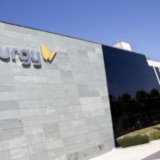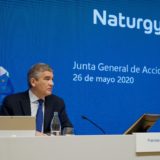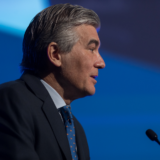Naturgy, ENI and the Arab Republic of Egypt have reached a new agreement to resolve amicably the disputes affecting Union Fenosa Gas (UFG), a company owned 50% by Naturgy and ENI. The parties have ratified the agreement whereby Naturgy will receive a series of cash payments of approximately US$600 million, as well as most of the assets outside Egypt, excluding UFG’s business activities in Spain.
The agreement, which is similar in terms to that agreed last February and which was terminated in April as certain conditions precedent couldn’t be met, involves valuing 100% of UFG at up to USD 1.5 billion depending on the energy scenario; of which USD 1.2 billion corresponds to assets in Egypt (including pending legal proceedings) and the rest to assets outside the Arab country.
The signing of this agreement has taken place after the ratification of the Egyptian commitment in its Council of Ministers last November 25th.
The president of Naturgy, Francisco Reynés, has valued “this agreement very positively, as it represents a clear advance in the simplification and reduction of the company’s exposure, allowing Naturgy to be released from its annual gas supply contract of around 3.5 bcm to supply its combined cycles in Spain, which ended in 2029, and thus resolve a complex situation that had been prolonged since 2012 and which the pandemic did not allow to be resolved in the spring”.
The completion of the transaction, expected in the first months of 2021 once the usual conditions precedent have been met, including the resumption of operations at Damietta scheduled for the first quarter of 2021, will mean Naturgy’s exit from Egypt and the end of its joint venture with ENI.
Both Naturgy and ENI stand to gain. On the one hand, Naturgy is free of the gas purchase contract it had signed with Egypt, a country with a political situation full of complications. On the other hand, ENI also benefits from the fact that it has important gas interests in Israel and the start-up of the liquefaction plant in Damietta is very favorable for it to be put back into operation in order to provide an outlet for all the gas in the area.
With this agreement, Naturgy, the company presided over by Francisco Reynés Massanet, demonstrates its ability to simplify and reduce the risk of its business positioning, in order to allocate its capital and resources to those businesses that maximize the creation of long-term value for all its stakeholders.
Plant shortage
The lack of supply by the Arab government as a result of the conflicts that occurred during the Arab Spring that ended with the overthrow of Mubarak prevented the supply of gas to the Damietta plant since 2010. Since then, the facility has been completely shut down, resulting in a devaluation of assets and a loss of income for Naturgy and ENI.
It has been eight long years of conflict that the company has ended after selling its 50% stake in UFG to ENI. The Ciadi award imposed at the time compensation to the Egyptian authorities of $2 billion (about ‘1.7 billion), which meant a distribution of $1 billion to Naturgy and another $1 billion to ENI.






